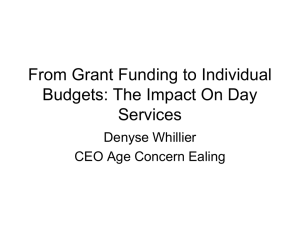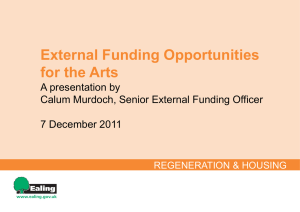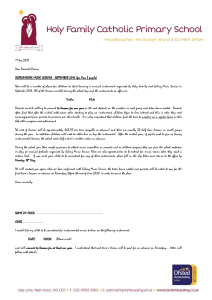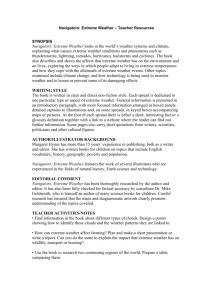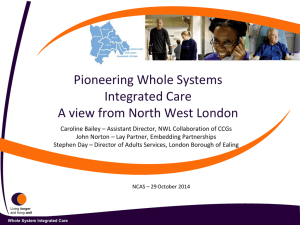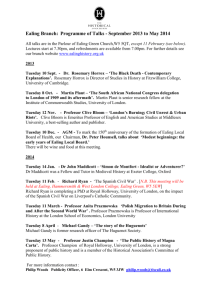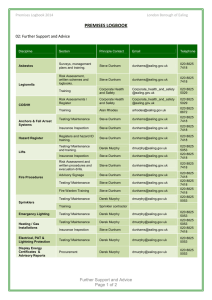What is Integrated Care?
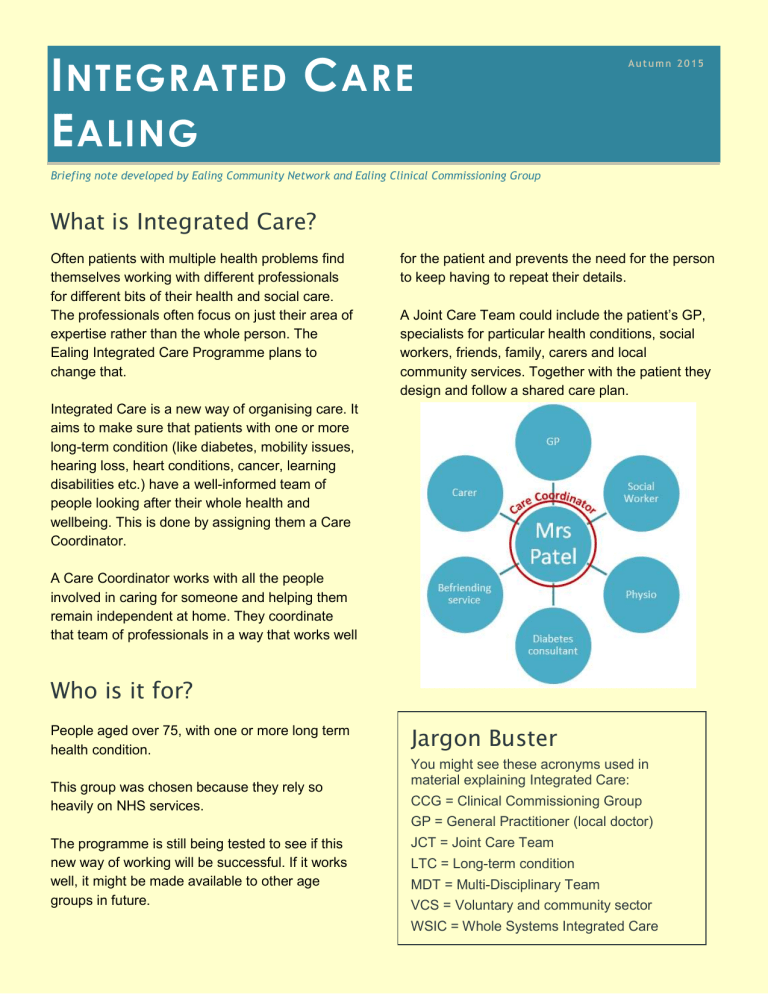
I
NTEGRATED
C
ARE
On Buster
E
ALING
Briefing note developed by Ealing Community Network and Ealing Clinical Commissioning Group
What is Integrated Care?
Often patients with multiple health problems find
Au t u m n 2015 for the patient and prevents the need for the person to keep having to repeat their details. themselves working with different professionals for different bits of their health and social care.
The professionals often focus on just their area of expertise rather than the whole person. The
Ealing Integrated Care Programme plans to change that.
A Joint Care Team could include the patient’s GP, specialists for particular health conditions, social workers, friends, family, carers and local community services. Together with the patient they design and follow a shared care plan.
Integrated Care is a new way of organising care. It aims to make sure that patients with one or more long-term condition (like diabetes, mobility issues, hearing loss, heart conditions, cancer, learning disabilities etc.) have a well-informed team of people looking after their whole health and wellbeing. This is done by assigning them a Care
Coordinator.
A Care Coordinator works with all the people involved in caring for someone and helping them remain independent at home. They coordinate that team of professionals in a way that works well
Who is it for?
People aged over 75, with one or more long term health condition.
This group was chosen because they rely so heavily on NHS services.
The programme is still being tested to see if this new way of working will be successful. If it works well, it might be made available to other age groups in future.
Jargon Buster
You might see these acronyms used in material explaining Integrated Care:
CCG = Clinical Commissioning Group
GP = General Practitioner (local doctor)
JCT = Joint Care Team
LTC = Long-term condition
MDT = Multi-Disciplinary Team
VCS = Voluntary and community sector
WSIC = Whole Systems Integrated Care
Page 2
What is the goal?
The goals of this new model are:
By understanding the whole person, better decisions can be made about their care and make it more effective.
Patients spend less time explaining their
‘story’ to many different professionals.
People are better able to manage their own health conditions and stay well and independent at home.
Root problems of ill health like social isolation or household issues are identified and addressed in the care plan, so people are less likely to become seriously unwell in future and end up in hospital.
Integrated Care Briefing
How do people access the service?
Currently, Care Coordinators are referred to patients by the individual’s GP.
There are a limited number of GP surgeries involved in the programme. By March 2016, all Ealing’s GPs should be part of the scheme.
Look out for more information in the New Year.
Care Navigators
Care Navigators are different from Care
Coordinators.
While Care Coordinators actively work with a patient’s Joint Care Team, Care Navigators provide information about a range of other services that can support people to get help, manage their health and stay well.
They are especially knowledgeable about the advice and support available from local community and voluntary groups.
Care Navigators will be in place and ready to respond to enquiries in early 2016.
For more information contact
Mark Leach at Ealing CCG markleach@nhs.net
or
Laura Ferreira at Ealing Community Network laura@ealingcvs.org.uk
